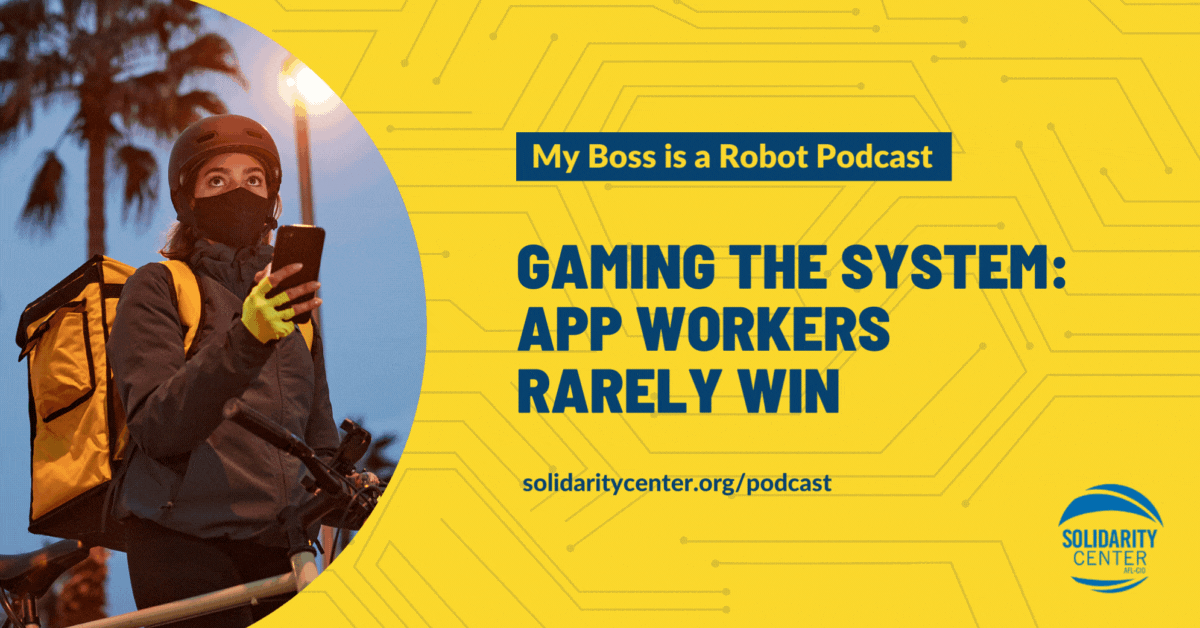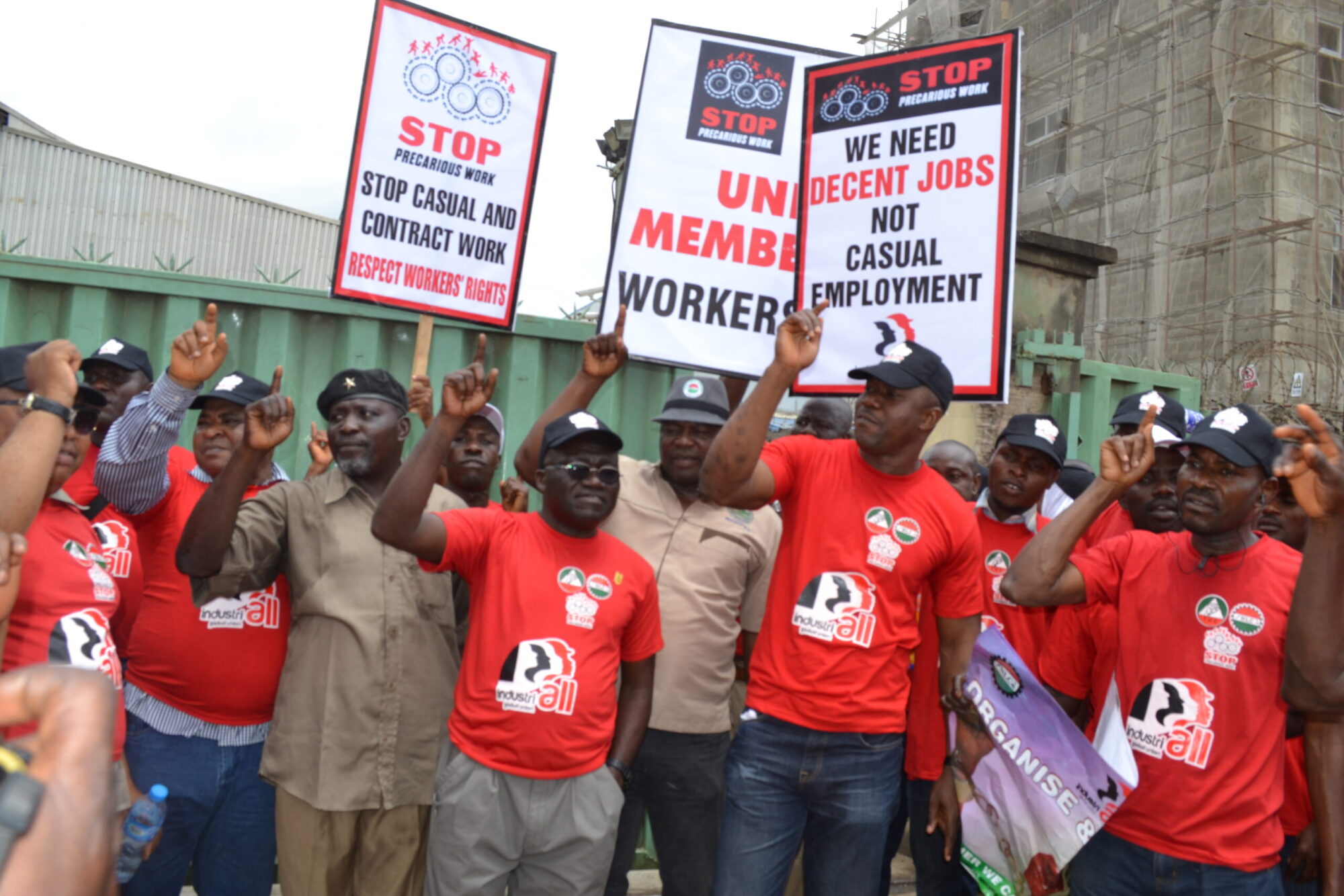Food delivery and passenger service drivers and are forced to follow the company apps. But if apps miscalculate and send drivers in the wrong direction, or lower wages for drivers stuck in traffic, it’s the driver who loses wages, or is even booted from the platform....
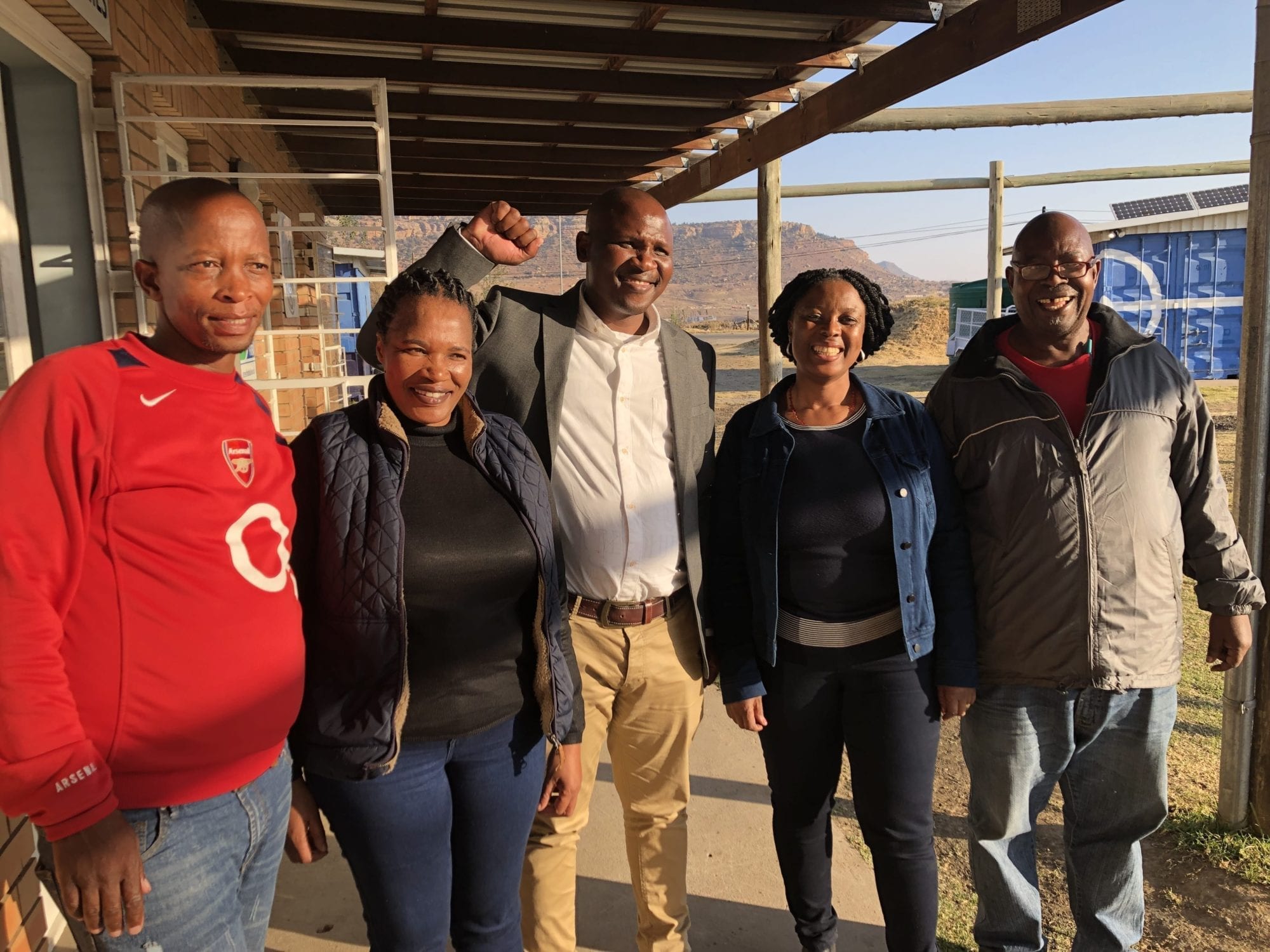
Garment worker leaders in Lesotho celebrate a new contract that moves toward a dignified, decent future of work. Credit: Solidarity Center/Shawna Bader-Blau
The future of work must be shaped by the women and men who are essential to the work process, who build our houses, sew our garments and design our computers. That is why the future of work must be rooted in democracy, the ability of all workers to freely form unions and collectively bargain to assert their fundamental rights in shaping workplaces that are fair, democratic and humane.
The Solidarity Center is advancing a worker-centered future of work through programs that encompass the voices of the Global South, put people before profits and confront the long exclusion of the most marginalized workers, including migrant workers, informal economy workers and women, especially in global supply chains such as the textile industry.
For instance, the Solidarity Center partnered with Lesotho-based unions and women’s rights groups, major fashion brands and international worker rights organizations to negotiate a landmark agreement with factory owner Nien Hsing Textiles that will address the rampant gender-based violence and harassment denying thousands of women garment workers a safe and dignified workplace in Lesotho.
Importantly, the agreement includes the freedom to form unions and collectively bargain, and is worker designed, with workers as full participants, equal in crafting and implementing the future they envision, one that ensures they are treated with dignity and fairness.
‘TELEWORK IS NOT A SEPARATE FORM OF EMPLOYMENT,’ SAY UNIONS
Only a worker rights-based approach can ensure that Europe’s growing numbers of teleworkers can fully exercise their fundamental labor rights—including to decent work, which includes safe working conditions—said International Lawyers Assisting Workers Network...
WEST AFRICA UNIONS FIGHT FOR WORKER RIGHTS IN FREE TRADE AGREEMENT
The African Continental Free Trade Area (AfCFTA) was sold with the promise to “promote and attain sustainable and inclusive socioeconomic development, equality and structural transformation.” However, many governments’ failure to engage civil society partners,...
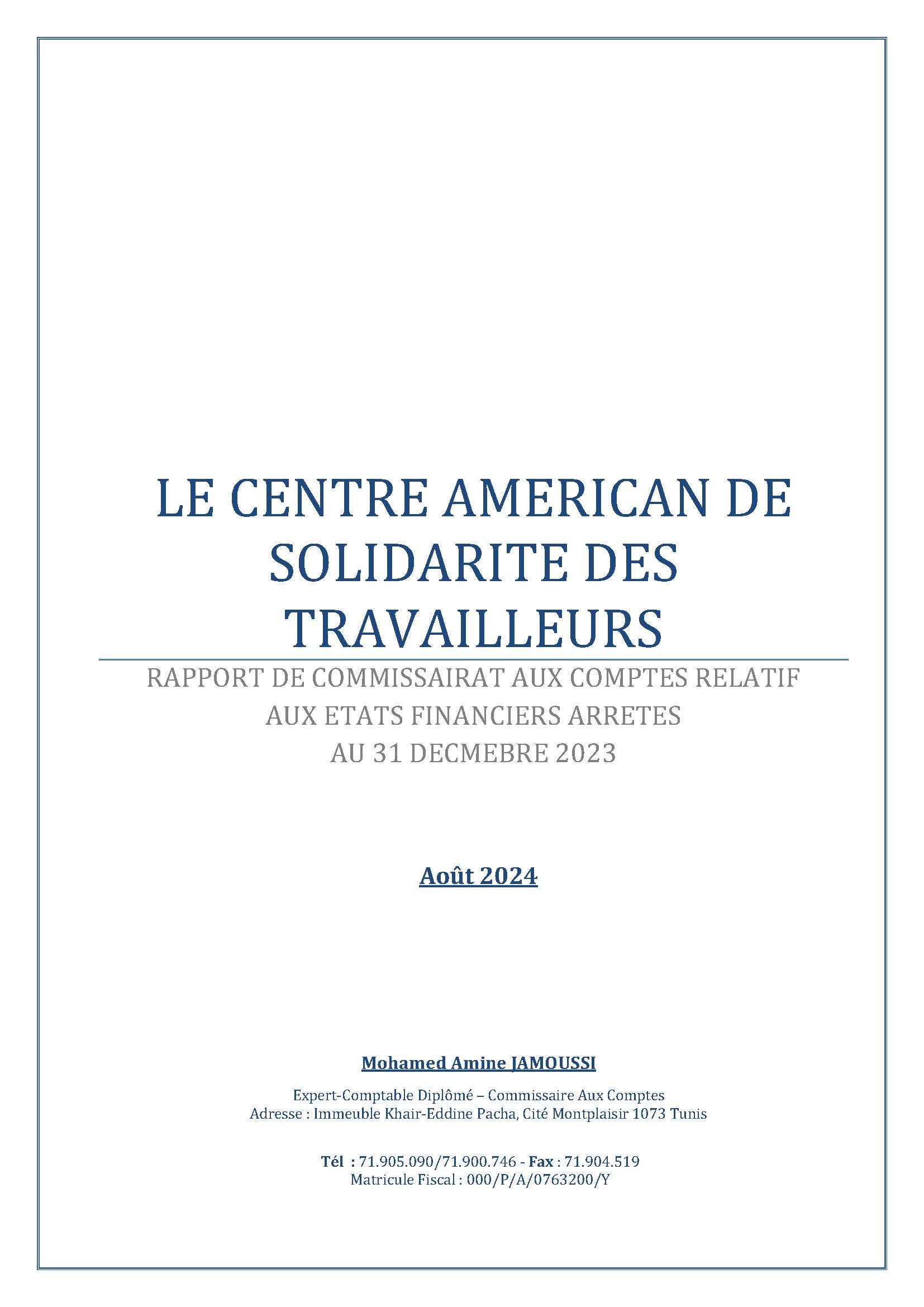
Rapport du Commissaire aux Compotes sur les Etats Financiers de L’Exercice Clos le 31 Decembre 2023
Read the full report here.

LOW PAY, NO SUPPORT: Sri Lanka Delivery Drivers Fight for Worker Rights
CLICK HERE TO READ THE FULL REPORT.

Heat Stress in the Cambodian Workplace
In Cambodia, workers health and safety and climate change are linked. This report details the results of surveys, interviews, and thermal monitoring conducted in the garment, delivery, and informal food sector that display the negative effect that heat has on workers,...
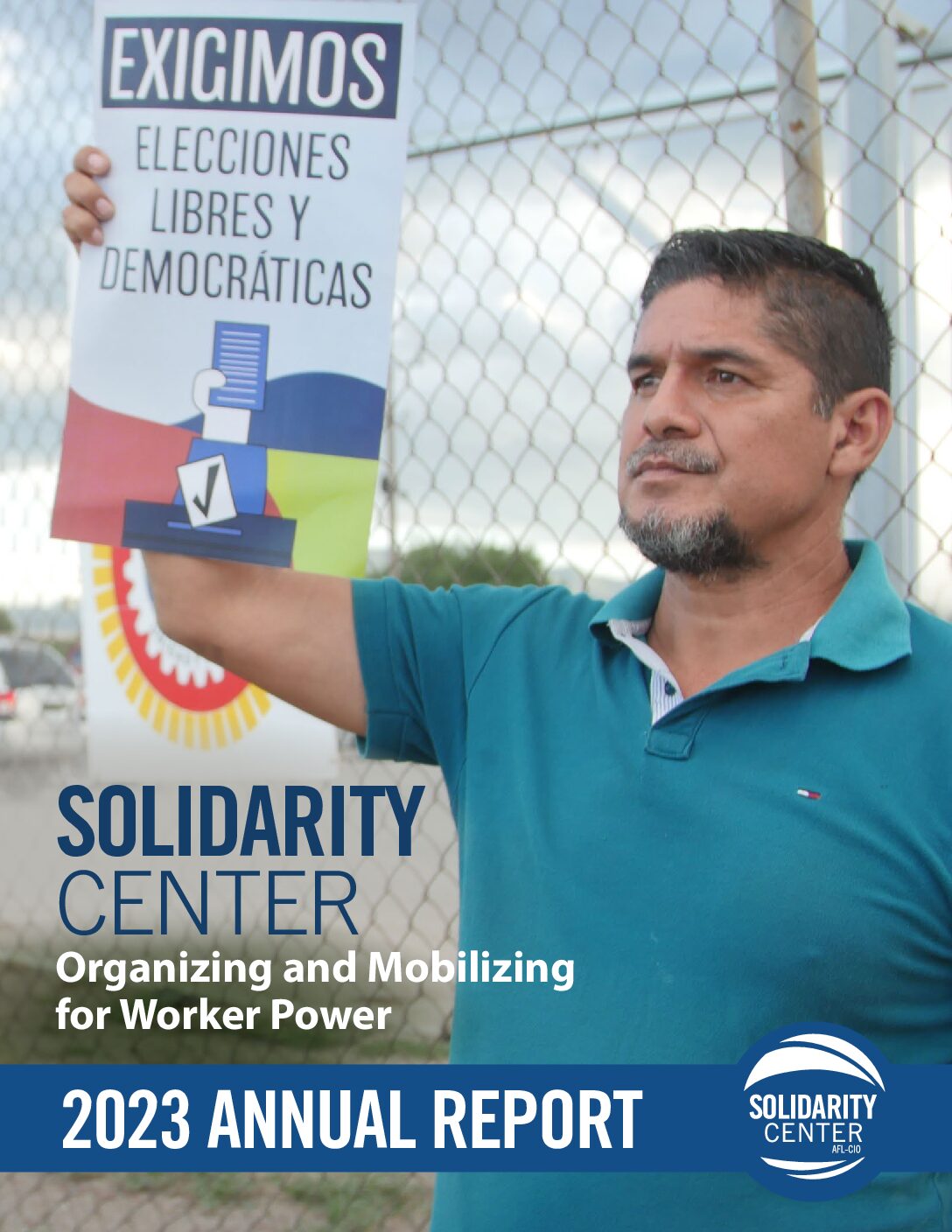
2023 Annual Report
In 2023, the Solidarity Center supported workers as they took on exploitative multinational companies and robot algorithms, demanded their governments tackle social ills and deliver on promises, and fought for justice in environments increasingly dangerous to those...
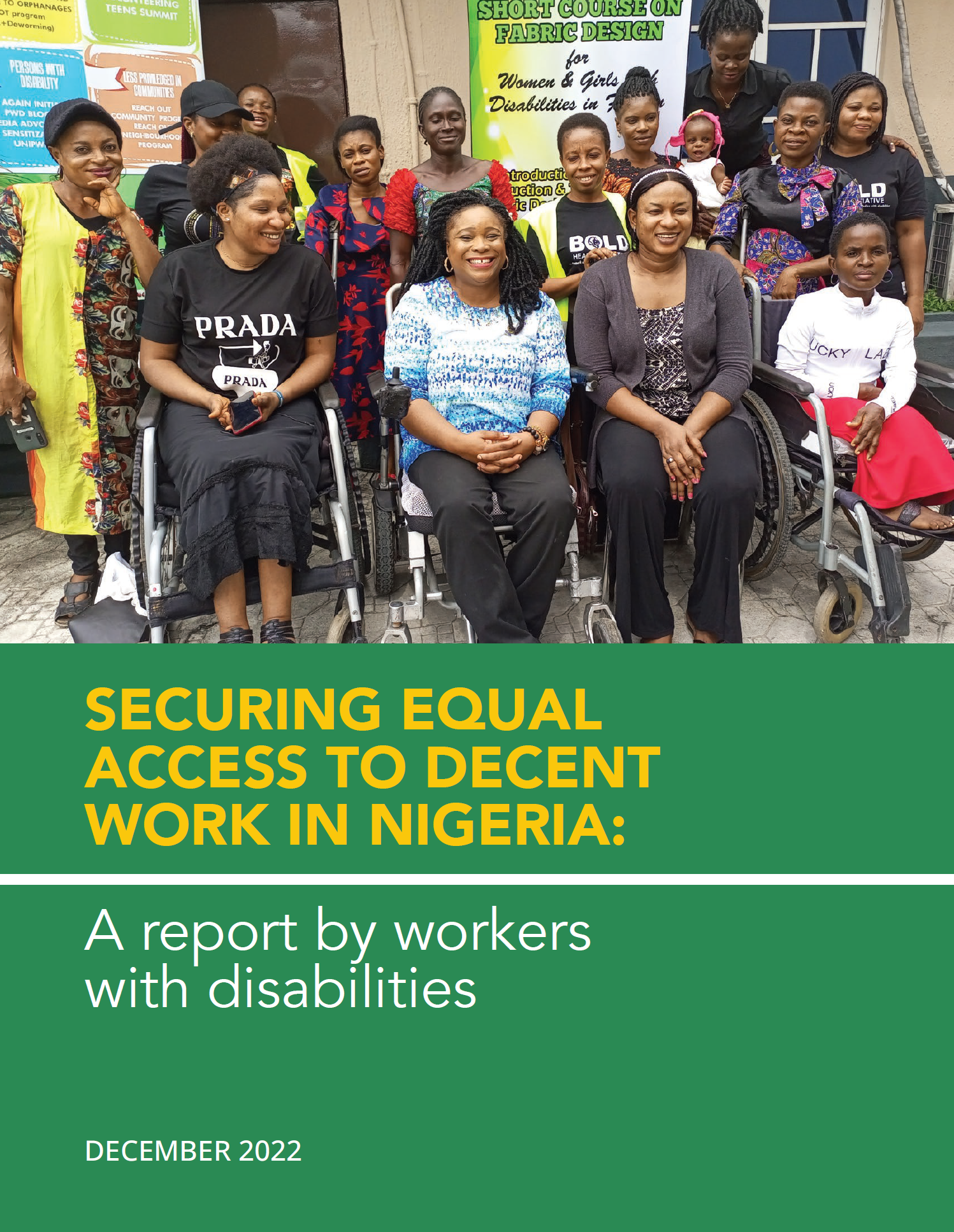
Securing Equal Access to Decent Work in Nigeria: A Report by Workers with Disabilities
A survey of more than 600 workers with disabilities in Nigeria conducted by the Trade Union Congress of Nigeria (TUC) Women Commission and the Solidarity Center in collaboration with Nigerian unions and disability rights organizations, finds that most workers...

2022 Annual Report
In 2022, the Solidarity Center marked a quarter century of supporting embattled workers, advocating and litigating for change, and celebrating worker rights advances in troubled times. As crackdowns on fundamental civil rights intensify around the world, workers and...

